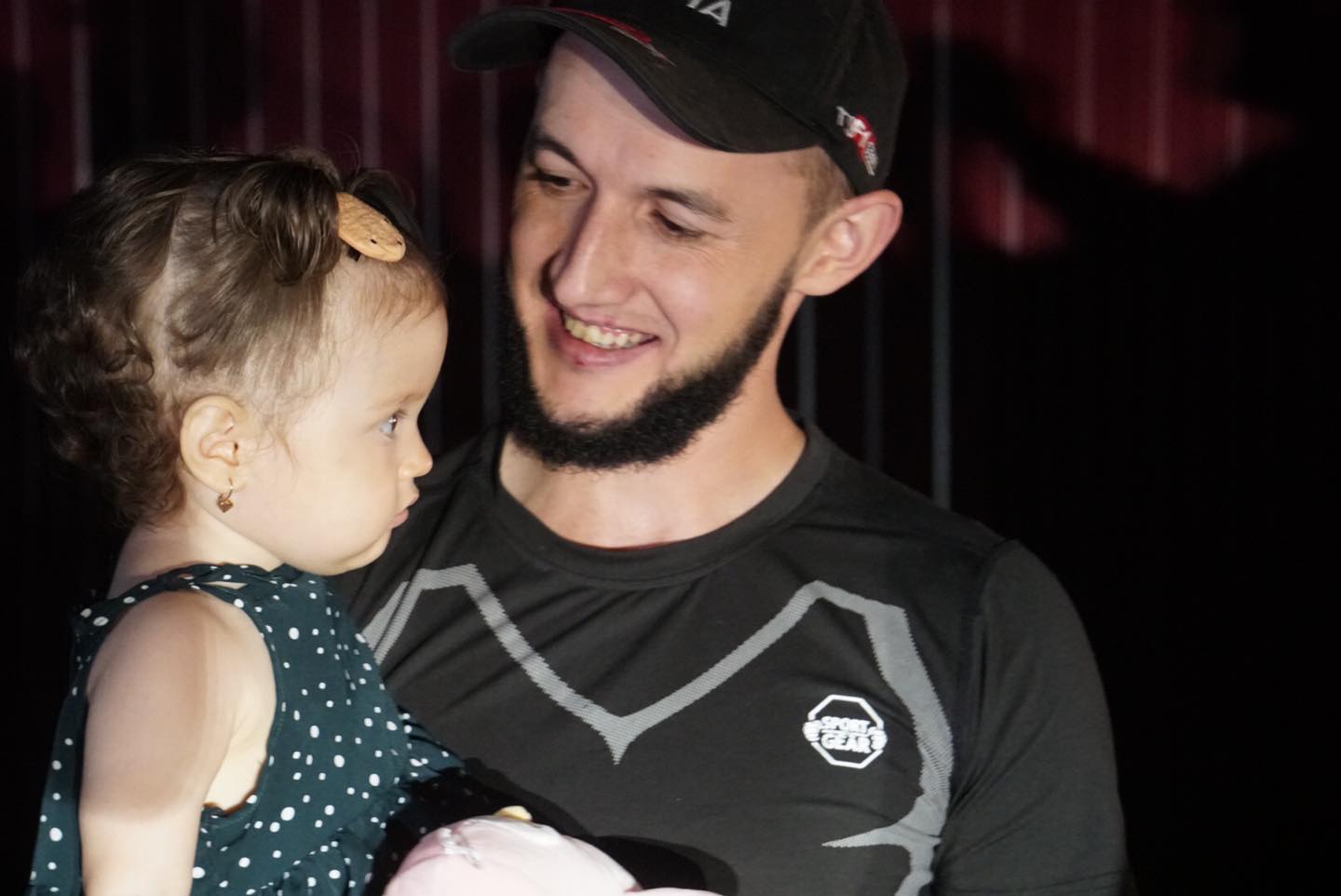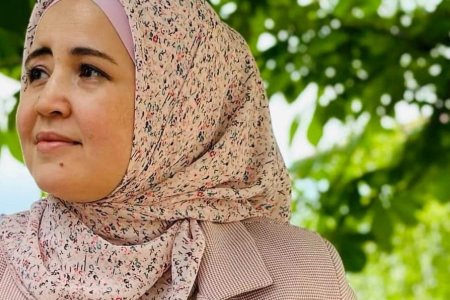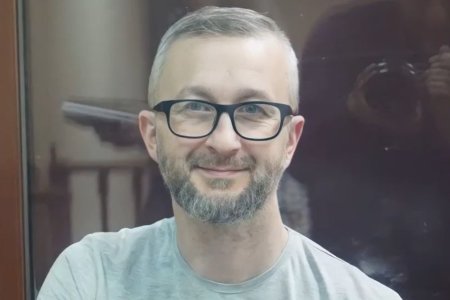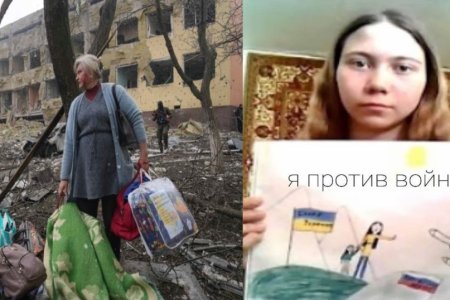
Armed and masked enforcement officers have burst into Kulamet Ibraimov’s family home just hours after the Crimean Solidarity journalist was freed after being imprisoned for trying to report on a political trial in occupied Crimea. The men from Russia’s so-called centre for countering ‘extremism’ openly threatened bad ‘consequences’ if Ibraimov continued his journalist work for the vital Crimean Solidarity human rights movement.
Kulamet married two years ago and was not at his parents’ home when the ten masked men, who had no insignia or other means of identification, appeared at 7 a.m. on 2 August. Although one of them read out the search warrant, they did not leave this or any other document to explain their raid, nor why they had burst into the family’s home with weapons. Kulamet says that his mother, Nefize Ibraimova, was terrified and can still not calm down after the experience.
As in all such armed ‘searches’, the men immediately removed Nefize Ibraimova’s phone as well as those of Kulamet’s brothers, making it impossible to alert lawyers; relatives; or Crimean Solidarity activists. The search lasted around an hour with the ‘enforcement officers’ looking both at the house and at sheds and cars. In an ominous, but typical, move, the men spent a lot of time looking at a book entitled ‘101 duya’ [prayers]. They wanted to know where Kulamet was and, he recounts, “they told my relatives that if I continue my activities, this will end badly for me, and so I ‘need to see sense’.”
The threat could not have been clearer. Such acts of overt intimidation provide further confirmation (were any more needed) that all of Russia’s repressive measures, including horrific sentences passed without any recognizable crime, are aimed at crushing Crimean Solidarity and the Crimean Tatar human rights movement in general.
Kulamet Ibraimov works as a correspondent both for Crimean Solidarity and for Grani.ru and has been detained on earlier occasions while carrying out legitimate journalist work.
He was detained on 1 November 2021 outside the occupation Crimean Garrison Court, where a supposedly open appeal hearing was taking place against huge sentences imposed on three recognized political prisoners: Crimean Solidarity activist Rustem Emiruseinov; Arsen Abkhairov and Eskender Abdulganiev.
There were mass detentions that day, with many resulting in brief terms of administrative arrest or fines. On that occasion, however, Ibraimov was released, without any charges being laid.
On 25 January 2023, Ibraimov was detained while trying to report on the detention hearing in the case of six Crimean Tatars who had just become the latest victims of Russia’s worst conveyor belt of repression in occupied Crimea. 33 Crimean Tatars, including a 17-year-old lad and at least two people with serious health issues were detained that day while simply waiting for the hearing outside the occupation Kievsky district court in Simferopol. Seventeen were prosecuted (under Article 20.2.2 § 1 of Russia’s code of administrative offences, for purported ‘mass presence at one time causing a disturbance to public order) and received fines or terms of administrative arrest. Not only was the charge grotesque, but Ibraimov had clearly been there in his capacity as a journalist, yet he was jailed for 12 days.
On 27 July, fourteen close relatives and other Crimean Tatars were detained for trying to attend another officially open hearing into the appeal against Russia’s internationally condemned revenge sentences against Crimean Tatar Mejlis leader, journalist and human rights defender Nariman Dzhelyal and two cousins. The detained also included Crimean Solidarity Coordinator and Graty journalist Lutfiye Zudiyeva and Kulemet Ibraimov. Both were there to provide coverage of the hearing and showed their press ID. This was ignored, although clearly known, as indicated by the wording of the charge against Lutfiye Zudiyeva. Most of the people were held at a ‘police’ station for around 12 hours before the occupation Kievsky district court rubberstamped the sentences demanded. Zudiyeva was fined 12 thousand roubles. Because of the previous absurd conviction and 12-day jail term, Ibraimov was charged under the more serious Article 20.2.2 § 4 and jailed for five days. This, it should be stressed, was for simply trying, as a journalist, to attend a hearing that had been declared ‘open’.
Fellow human rights defenders and Zudiyeva’s colleagues from Graty had pleaded for international reaction and there were indeed protests over the arrests of the journalists. The Committee to Protect Journalists (CPJ) demanded that the occupation authorities drop all charges against Zudiyeva and Ibraimov and stop prosecuting members of the press for their work. Similar calls were issued by the European Federation of Journalists; Reporters Without Borders; the Council of Europe’s Safety for Journalists Platform / Council of Europe Media Freedom; Ukraine’s National Union of Journalists; Frontline Defenders; the European Centre for Press and Media Freedom; and the Coalition for Women in Journalism;.
Russia has been openly targeting Crimean Tatar and other Ukrainian journalists since its invasion and annexation of Crimea. The critically important Crimean Solidarity human rights movement, its journalists and activists have been under fire since soon after the movement arose in response to Russia’s mounting political repression in occupied Crimea. Very many journalists, such as Remzi Bekirov and Crimean Solidarity Coordinator Server Mustafayev, were first subjected to administrative prosecutions. When they refused to be silenced, the FSB fabricated profoundly cynical ‘terrorism’ charges against them, with the men, internationally recognized political prisoners, now illegally imprisoned for their courage and civic position in Russia.
International reaction, and pressure on Russia is needed now, especially in the light of the terror methods and open threats now mounting against Crimean Solidarity and Grani.ru journalist Kulamet Ibraimov.



